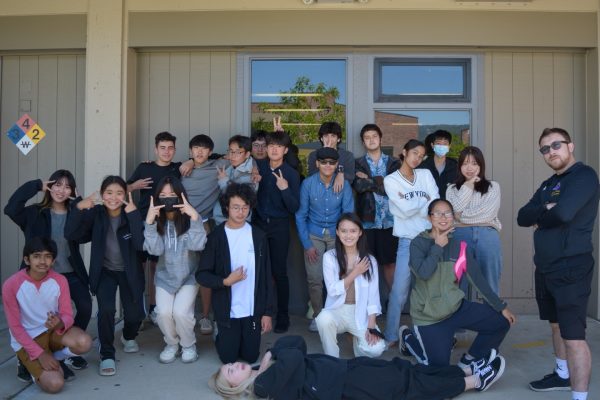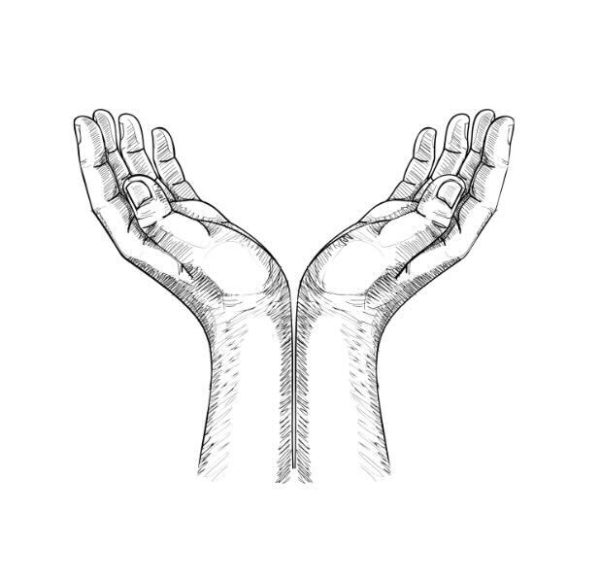Forgiveness that comes from a snack
Reflecting on the change in a parent’s role from child to child
“How was snack time?” my dad asked my little sister Nicole while picking her up on the first day of school.
Hand in mine, Nicole squinted her eyes as she smiled under her mask. She went on to whine about how she didn’t want the “Ziploc bag grapes” for snack anymore and skipped all the way to my dad’s parked car giggling about how she preferred sliced pears.
I couldn’t help but realize I had never heard those words come out of my dad’s mouth before. In fact, I couldn’t recall my parents ever asking me about how school was, let alone about something as trivial as snack time. I never actually had the opportunity to complain about what fruit I liked, because there was no fruit to complain about. I’d be surprised if they even knew I had a snack time since I wasn’t given a single snack in my six years of elementary school, aside from the occasional pity bag of Cheez-Its or half of a Fruit Roll-Up I would snag from my friends.
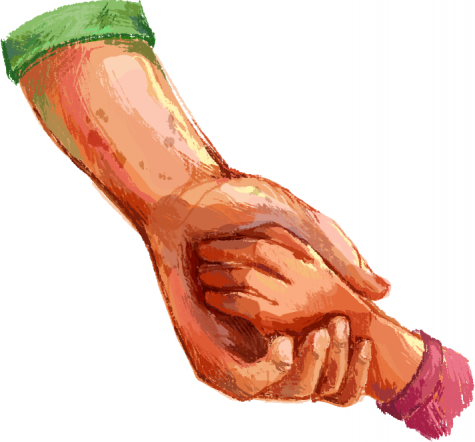
The more I think about it, the more I feel like their neglect didn’t stop at just a forgotten snack. Like many other kids, both my parents were always too busy at work or they were sleeping because they overworked themselves. And when my dad wasn’t doing those things, he would come out of his office and start yelling, telling us we were moving once again — each time forcing me to restart my life at another school, another city, another state. My dad didn’t seem to consider for a moment how his job-switching spree could affect his own life, much less his children’s lives.
As a result of my parents’ absence, my grandma would be the one to walk me to school on the early frostbitten mornings. She would hold my hand, bringing warmth to it when it had numbed to the cold. At times, it almost felt that she was more present in my childhood than my actual parents.
But I don’t blame them. If not them, then who else would make money to keep my family sheltered and fed? Three daughters only add to the stress. I’m privileged enough to have parents who love me and do what they think is best for me.
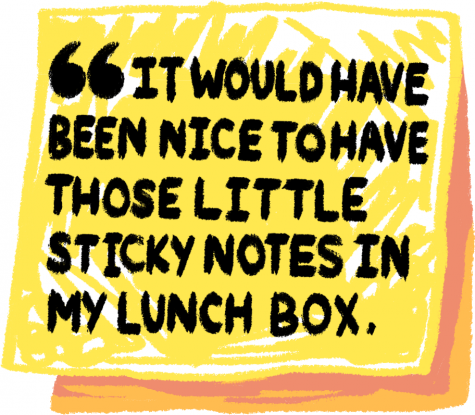
Still, it would have been nice to have those little sticky notes in my lunch box, cheering me on during school. It would’ve satiated some of my need for my parents’ affection.
More recently, in the first week of junior year, I went hiking with my dad. He talked about his regrets, how he wished he could have lived a better and more stable life. He even brought Chinese prose poems and philosophy books into the conversation — that’s when you know it’s getting serious. But the conversation ended with him talking about how he wished he was a better parent, and that — more than anything he’s ever said — felt genuine.
“I was being stupid,” my dad said in Mandarin.
It took 13 new houses, each smaller than the next, for my dad to realize that his decisions deprived me and my sisters of making long-term connections. Every year, we would move houses and change schools — and every year, he didn’t seem to show any sympathy for the consequences. I didn’t want to listen to him, because even when I screamed as my tears spilled on the carpet, he didn’t listen to me.
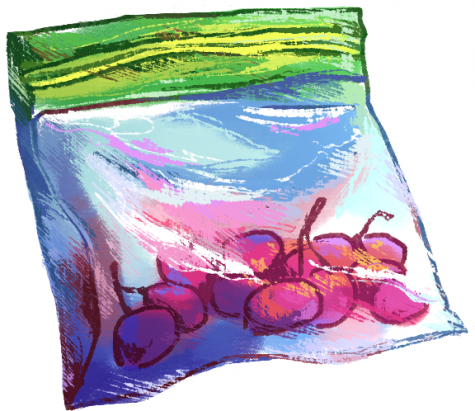
But he would have never acknowledged his faults in the past — that’s enough of a reason for me to think he’s changed. Or at least, we haven’t moved in a few years, so that must mean something.
Even though my dad can never undo the past, his recognition of his mistakes and expression of his regret helped me reach a place of forgiveness. Wanting to help now and be more present even though he was rather absent before can mend some damage because — just sometimes — it’s enough.
“I brought you a snack,” he now says as he drives me to school.
Waffles, grapes and even those weird spicy cheese curls from Whole Foods. It was more than I expected and more than I could ever ask for.




